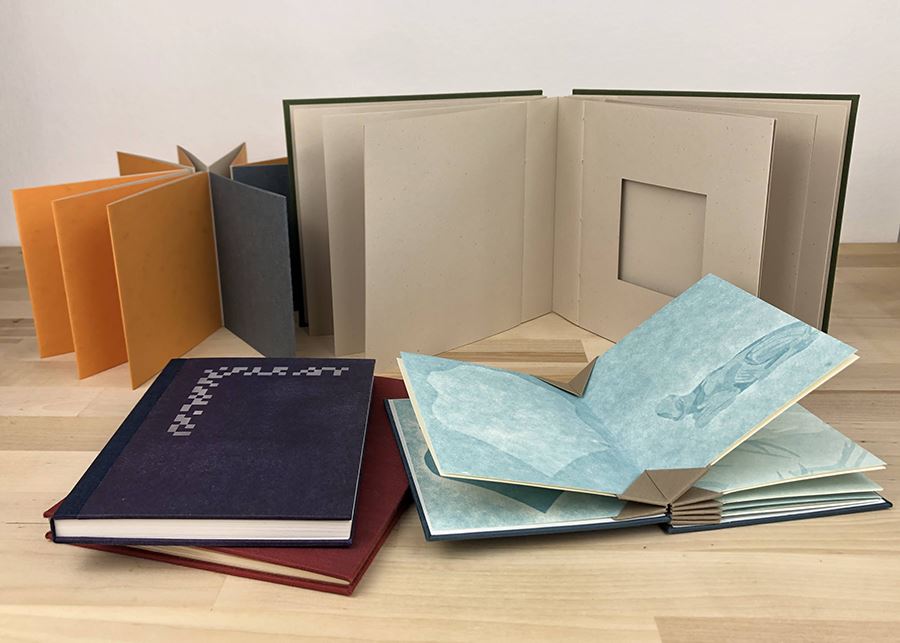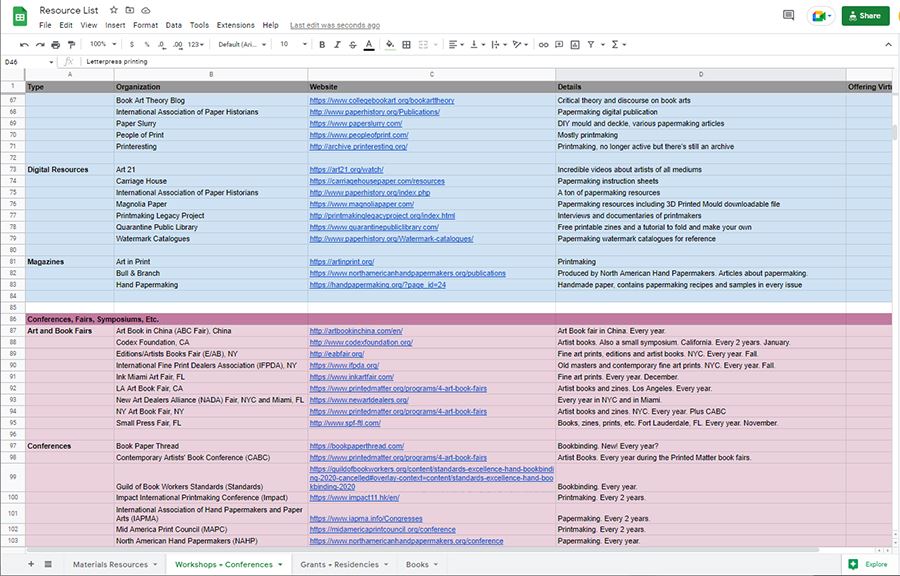In this article, I would like to unpack some of the reasons gatekeeping can perpetuate. I believe most of the reasoning is understandable and justifiable, but I want to encourage our community to think through ways we can open gates of all sizes.
Students don’t have access to equipment, so they can’t learn this technique.
Fair, but equipment access is a privilege and there can be economic barriers preventing access to that equipment for all makers, not just students. Additionally, there may be times when artists will not have access to equipment for other reasons, such as at many artist residencies. It can be difficult to teach certain techniques without equipment, but even just adding a quick mention to your students about the kinds of workarounds they could research may eliminate a mental barrier that would keep them from making books or prints again.
It is also important to be transparent about the costs and benefits of investing in quality equipment. Some workarounds/DIY equipment can be so frustrating, the maker abandons book arts when they could have invested 10 more dollars for a better brayer, awl, etc. and eliminated most of their struggle. Additionally, newer makers may not be aware of the grants and assistance available, so even just briefly mentioning that possibility can open gates.
Book artists and printers love to talk shop – we are constantly discussing what down-and-dirty tricks work, what style press has which common problems, and what equipment is worth purchasing or skipping. This kind of “institutional” knowledge is almost impossible for students or new book artists to research in an effective way, so by freely giving that information to newer makers, the community opens space for innovation.

This is too advanced to teach.
I hear this mostly regarding workshops and, given time constraints, equipment constraints, and participant experience constraints, this is a valid concern. However, many advanced courses in book arts and printing are only offered through higher education programs. Enrolling in one of these programs can be a huge barrier if one does not have the time, finances, or learning style best suited for higher education. Additionally, academia can manipulate aspects of these advanced courses – adding pressure to boost enrollment which may change the curriculum, limiting student access to instructors who juggle terrible schedules as they try to live on adjunct pay, and forcing external standards for grading, etc.
There are, of course, some advanced courses taught as workshops outside of academia, but I would like to encourage an expansion - not only in number but also in topic. I would love to see more courses (introductory and non-introductory) about critical theory, concept + content, professionalism, the role of words in book arts, implementing multimedia, problem solving, and innovations in technology for book artists.

Students don’t need this information; they only need this information.
This may be a choice made for the sake of time or to limit confusion – it is often accidental gatekeeping. I do not think this kind of curation needs to be eliminated. However, it is important to make efforts to provide resources to students and new book artists so they may acquire the information themselves. This may be as simple as reminding them that there are multiple ways to accomplish something – while teaching a letterpress course, mention that some printers and artists print by hand – or by recommending resources the students can use to expand their knowledge. (Here is a resource guide I have been working on.)
These students are too young or too old to learn this.
It is more common to hear this argument when considering what topics to cover in children’s workshops. However, I am surprised at how often I have heard this in reference to undergraduate students or the age of workshop participants compared to graduate students. This argument is intentional gatekeeping and feels lazy to me. I genuinely believe anyone can learn anything and it is not the place of the instructor to hold knowledge back. Allowing age to act as a barrier shows an unwillingness to adapt one’s own teaching style. If individual instruction is needed, additional time can be built into your course. If physical limitations exist, there are tools to assist.
Beth Sheehan is an artist currently living in Tuscaloosa, AL. She teaches paper, print, and book workshops around the US and virtually. She co-authored the book Bookforms. Sheehan has also worked as a professional printer at Durham Press and Harlan and Weaver and was the Bindery Manager at Small Editions.

